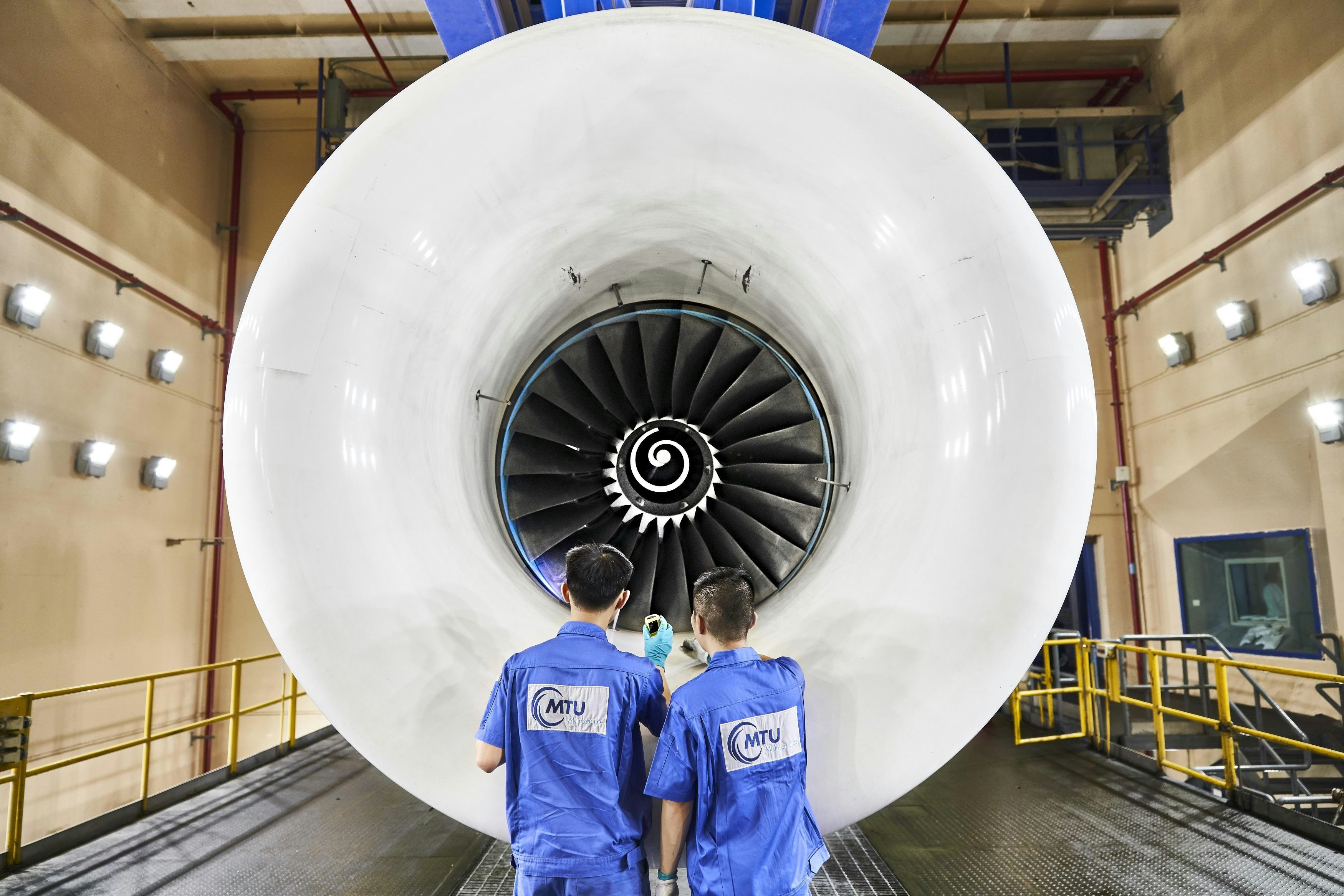AeroGenie — Ваш интеллектуальный второй пилот.
В тренде
Categories
MAB Engineering Services Partners with MTU Maintenance Zhuhai to Enhance Aviation Maintenance

MAB Engineering Services Partners with MTU Maintenance Zhuhai to Enhance Aviation Maintenance
Strengthening Regional MRO Capabilities
KUALA LUMPUR (Oct 22) — Malaysia Aviation Group’s maintenance, repair, and overhaul (MRO) division, MAB Engineering Services, has formalized a support services agreement with MTU Maintenance Zhuhai to bolster its engine maintenance and on-site support (OSS) capabilities. This collaboration builds upon a memorandum of understanding signed earlier in 2023 and aligns with MAB Engineering’s strategic objective to establish itself as a leading MRO provider within the Asia-Pacific region.
MTU Maintenance Zhuhai is a joint venture equally owned by Germany’s MTU Aero Engines and China Southern Airlines, the largest airline in Asia by fleet size and passenger volume, and among the top five carriers globally. Under the terms of the agreement, MAB Engineering aims to be operationally ready to provide OSS for CFM56-5B and CFM56-7B engines by July 2026. Readiness for V2500 engines is targeted for 2027, followed by LEAP engines in 2028. The partnership encompasses comprehensive technical training, project management support, and sales assistance, all supported by certifications from major international aviation regulators.
Navigating Market Opportunities and Industry Challenges
This alliance positions MAB Engineering to capitalize on the rapidly growing Asia-Pacific MRO market, currently valued at over US$25 billion (RM105.73 billion), while reinforcing Malaysia’s strategic role in the global aviation maintenance sector. Gert Wagner, CEO of MTU Maintenance Zhuhai, emphasized the increasing demand for MRO services across Asia and expressed confidence in the partnership’s capacity to meet this surge.
Nonetheless, the collaboration unfolds amid persistent industry challenges, including capacity constraints and supply chain disruptions that have extended engine maintenance turnaround times. Similar issues have been observed at other providers such as Israel Aerospace Industries (IAI). In response, competitors are innovating operationally; for example, component maintenance specialists like AAR are developing new repair solutions and incorporating used serviceable materials (USM) where appropriate, in coordination with their customers.
Both MAB Engineering and MTU Maintenance Zhuhai are likely to encounter comparable obstacles as they expand their OSS capabilities. Infrastructure limitations and gaps in MRO capacity remain significant concerns, particularly in emerging markets such as Africa, where demand for aircraft, crew, maintenance, and insurance (ACMI) services is rising but supply chain reliability continues to pose challenges. Effectively addressing these issues will be essential for the partnership to deliver timely and comprehensive support to airlines throughout the region.
Despite these hurdles, the agreement represents a pivotal advancement for MAB Engineering as it seeks to broaden its presence in the competitive MRO landscape and adapt to the evolving demands of the aviation industry.

Emirates Unveils Cabin Design for New Boeing 777X

Eighteen Years On, the Airbus A380 Remains Central to a $34 Billion Airline

How a boom in luxury airline seats is slowing down jet deliveries

Navitaire Outage Attributed to Planned Maintenance

DigiYatra Debuts Outside Aviation at India AI Impact Summit

Vietnam Orders Strengthen Boeing’s Commercial Outlook

Airbus Signals Uncertainty Over Future A400M Orders

JobsOhio Awards $2 Million Grant to Hartzell Propeller for Innovation Center

Collins Aerospace Tests Sidekick Autonomy Software on YFQ-42A for U.S. Air Force CCA Program

How the Airbus A350-1000 Compares to the Boeing 777
